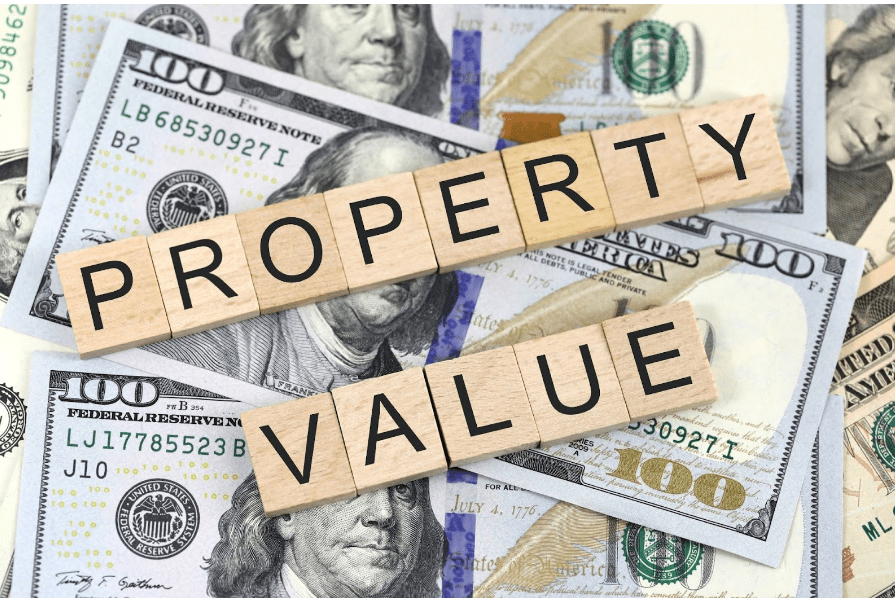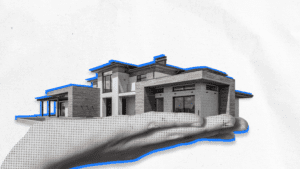There’s an old saying that the value of something is only worth what people are willing to pay for it. In the age of NFTs, where pictures of randomly generated apes sell for hundreds of thousands of dollars, you can argue that it’s still the case. However, in the real estate industry, that’s partially true. Sure, there’s always a price that real estate buyers are willing to pay, but it doesn’t necessarily mean it will be the “fair market value” of the property. So, the question here is how to value a property in the UAE?
There are three common approaches, including three methods, totaling 6 ways to property valuation. Each one follows a holistic approach to the property’s value, with comparable trends and evidence in the market (to various extents). However, we first have to know what factors can influence the valuation.
Unlike other consumer goods that can be quickly used, the benefits of a property are generally realized over a long period of time, which can span years or even decades. Therefore, any property value estimations must consider economic and social trends like market activity and population migration in the relevant area. Factors influencing the valuation of a property include location, floor plan, amenities, view, property size, energy efficiency/adaptability, profitability potential, transaction date, and much more.
Now that we know what factors influence a valuation. Let’s look at the different approaches:
1. Market Approach
The Market Approach follows a principle that the value of one property can be derived by directly comparing it with market transactions of similar properties in the market. It’s pretty straightforward. In a highly transacted market and area, this approach can be very useful as there’s plenty of recent comparable evidence. If the market is purchasing properties drastically above their valuations, odds are the market is on the way to bursting a bubble in the area.
A property that has the market buzzing and is located in a popular area will naturally have a higher value than a relatively unknown property in the outskirts of the city. Moreover, if let’s say a 1-bedroom in Dubai Marina, which is a popular area and a highly transacted market, has an average transaction price between AED 1 to 1.2 million, the valuation will come into that range.
2. Income Approach
The Income Approach is a bit more complicated in that the property’s value is derived from the income the property can provide the investor.
There are two ways to utilize this approach: the investment method and the profits method (which are considered 2 distinct ways for a property valuation).
3. Investment Method
In the investment method, the value is derived from the net rental income the property can generate and a capitalization factor based on the expected annual rate of return. A property that is able to charge higher rent, while having below market-average service charge costs, will obviously have a higher valuation.
4. Discounted Cash Flow Technique
Another form of the investment method is the discounted cash flow (DCF) technique. The key factors that influence a DCF valuation are rent, rental growth rate, discount rate, costs, and the disposable price at the end of the investment period.
5. Profit Method
The profit method, which is more common for commercial real estate, is used when the property’s value is derived by the trading potential of the business for which the property is meant for – this could be a cinema extension in a mall or a golf course in a country club.

6. Cost Approach
Now that’s a bit more niche in its scope. It’s used to value real estate that does not usually sell on the open market, and where comparable evidence does not exist, such as public buildings and places of worship. In some jurisdictions, this can be used to value proposed or recently built properties.
Unlike other methods, which rely on comparable properties and the property’s ability to generate revenue, this approach is based on the assumption that the cost of a property should be equal to the cost of building a similar property from scratch. This includes the value of the underlying land and the value of site improvements/constructions, minus the depreciation costs of the improvements. Public government buildings aren’t transacted on the market and places of worship don’t get rented out to tenants. That’s why the cost approach can come in handy for valuators.
Why would investors want to value properties?
The best way to answer this question is with an example.
Rob purchased a small studio property in the outskirts of Downtown Dubai for AED 2 million, with a view of the street, but did not conduct an independent valuation of the property – which would have stated that it was actually worth AED 900,000. The evaluator used the market approach, evaluating transactions in the area of properties with a similar profile – size, location in the area, amenities, view, etc – and came to their conclusion.
Rob would have also been annoyed to hear that his friend, Lucy, also bought a similar property worth AED 1.2 million but located closer to the area’s center and with a view of Burj Khalifa. The difference between the two was that Lucy made sure to find out the appraised value of her property, which would obviously be higher because not only is it located in an in-demand section of Downtown Dubai but also because the property has higher rent potential due to its view and amenity density. So, Rob ended up over-spending on the property he purchased.
Rob’s overspending may come back to bite him, as when he’s looking to sell the property in a few years and unless its value drastically appreciates 122% within a short period, Rob would probably end up making a loss. Plus, in order for the property to generate an attractive net yield of 6-7%+, his charged rent would definitely have to be higher than the rest of the market – making high occupancy unlikely.
Does SmartCrowd have their properties valued?
At SmartCrowd, we always have every property evaluated by a third party, like CRC, before listing them on the platform. This way we ensure you are not only getting the property at a fair market value (or below) but also exposed to a transparent structure.
That’s why most, if not all, of the properties we list on the platform are either at market value or below. If a seller’s list price is still over its market value, we don’t move forward with the opportunity, and if they’re flexible, we always look to negotiate the price down to the appraised price or below. Learn more about our property valuations here.






